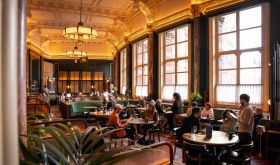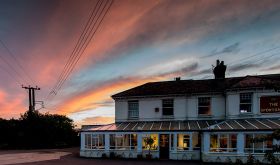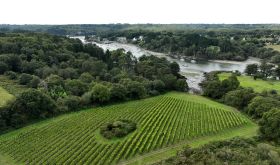The brothers Richard and Peter Harden have just produced the 19th edition of their London Restaurant Guide (www.hardens.com).
This longevity is due to a combination of various factors. Their opportunism in spotting the viability of a pocket book, Zagat-like guide to London at a time when the Zagats were still only in the US; two good appetites whetted, not surprisingly, by frequent trips to the gym; an easily memorable pseudonym when making reservations so that they can review anonymously; and an excellent sense of timing when launching each guide.
They cleverly do this at the end of every August, a fortnight before Tim and Nina Zagat come to London to launch their own guide, at a time when the media are invariably short of a good news story.
In the past the Hardens have come up with headlines that have related to the rise and fall of certain specific chefs, but this year they seem to have excelled themselves. 'London restaurants defy recession' they proudly announced last week with almost enough convincing facts and figures.
This claim is based on a comparison of the number of restaurant openings and closures over the past year. Far from being the bloodbath many had predicted, the number of openings during 2009 was 8% higher than the previous year, at 121 rather than 111, while the number of closures, at 64, was the lowest number since 2000.
Several factors are adduced to explain this unexpected turn of events. The year-long reduction in VAT from 17.5% to 15%, a gift from the Chancellor of the Exchequer which many restaurateurs have not passed on; that many Londoners are still in employment and their disposable income has been increased by lower mortgage payments; and the increasing effectiveness of numerous restaurants to market themselves via their own increasingly sophisticated websites.
That the Hardens concentrate on these practical issues should not come as a surprise. But this year rather than perhaps any other it should be London itself rather than the restaurants which gets the credit for withstanding, if not defying, the worst effects of the past year.
Although many of the capital's restaurateurs are feeling commercially battered and bruised, they are also slightly buoyed by the fact that business has not been worse.
Unlike their counterparts in New York or Paris, they have benefitted from the weakness of sterling that brought significant, unexpected business during the first six months of the year. This crucial bonus took effect after numerous restaurateurs had cautiously reduced costs and staff. Those in the West End particularly were able to benefit from these increased numbers as, for a similar reason, the sales of tickets at the nearby theatres increased significantly year on year.
Yet even resilient London and its cosmopolitan clientele would not allow the more misguided restaurateurs to survive.
Aaya, a chic Japanese restaurant, opened and closed in Soho in no more than a year because although the food was good the sushi counter, the focal point of any such restaurant, was in the basement hidden from the customers on the ground floor. And L'Ambassade de L'lle in south Kensington lasted no longer, proof that if expensive French restaurants are to have a future in London, it almost certainly has to be in Mayfair.
Kings Cross/St Pancras was the unexpected location for two of the year's grander openings, Rotunda and St Pancras Grand. But both of these are part of much larger development. The former is in King's Place, an office complex/arts centre while the latter is in the newly refurbished St Pancras Station.
Spitalfields, close to the City, should have witnessed two further openings by now, the Galvin brothers' third restaurant La Chapelle and Luxe from John Torode of Smiths of Smithfield. That both have been delayed is due entirely to sensible management as both live with the reduced cash-flow every company is facing in this recession and with the hope that by the late autumn we will all be feeling a little more confident.
But these delays, and expensive openings in less well-represented parts of London, are also a reflection of just how crowded the West End has become and how difficult it is for logistical and licensing factors to facilitate a brand new site.
But that is not a barrier to entry for those with a good idea and a new approach even in a previously unsuccessful site.
Terroirs, one of the notable openings of the year for the Hardens and a personal favourite, is now thriving in what was for years a Davy's Wine Bar right by Charing Cross Station. With passion; limited resources (there is no gas in the kitchen, for example); and limited funds (their charcuterie slicer was bought on eBay from a butcher in the north of England who was closing down) the partners have created a hugely popular wine bar and restaurant.
Although French in many aspects, Terroirs follows in the tradition of the British gastro-pub which first emerged from the recession of the early 1990's. Many more will, I hope, follow this inexpensive route.













